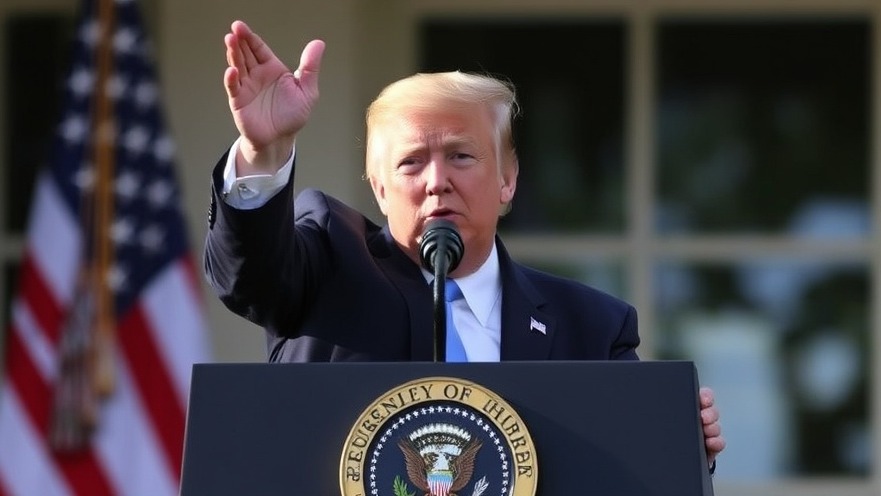
Divine Intervention or Political Strategy? The Context of Trump's Claims
Former President Donald Trump recently asserted that his loss in the 2020 presidential election was ordained by God. This claim, vocalized in a rally, reflects not only Trump's personal beliefs but also taps into a long-standing narrative of divine influence in American politics. The intersection of faith and governance has been a thread woven throughout the nation's history, as political figures have often cited divine support for their actions. Trump's reference evokes a complex dialogue about accountability, belief, and the electorate's role in democracy.
Historical Precedent: God in American Politics
The entwinement of faith and politics in the United States is far from a novel concept. From Abraham Lincoln, who frequently invoked God during the Civil War, to Franklin D. Roosevelt's calls for divine guidance during the Great Depression, American politicians have historically sought to justify their political fortunes through religious beliefs. Trump's statement may reflect a broader trend where leaders frame personal failures as part of a divine plan, promoting a sense of resilience among supporters and reinforcing their commitment.
Implications for Faith-Based Voting
Trump's assertion could resonate deeply with his base, comprised significantly of evangelical Christians who may view his loss as a matter of divine will rather than political failure. This interplay suggests the potential for shifts in GOP strategies, where candidates align more closely with religious narratives to galvanize voter support. Religious belief can significantly influence political outcomes, and understanding this connection is essential for any campaign navigating through the complexities of modern American politics.
Counterarguments: Disappointment and Disenchantment
However, not all fields of faith-congruent thought hold Trump's explanation in high regard. Some critics argue that attributing electoral defeat to divine influence can dilute personal accountability. Political analysts suggest that voters may feel disillusioned by leaders who abdicate responsibility, particularly in contentious times where transparency and accountability are demanded. This counterargument opens a dialogue on the impact of such rhetoric on Trump's legacy and the broader political landscape.
Future Predictions: Shifts in Republican Messaging
The implications of Trump's statement could herald a shift in the Republican messaging strategy as the 2024 election nears. Candidates may increasingly lean on religious language to connect with voters, potentially creating deeper divisions within the party between traditionalists and modernists. Such dynamics will be crucial to monitor—especially as new candidates emerge, looking to capitalize on or counter Trump’s brand of faith-infused politics.
Local Perspectives: San Antonio's Community Response
In San Antonio and other communities, local responses to Trump's claim can evoke varying sentiments. Faith leaders in the area may perceive this statement as a moment to engage congregants on issues of political ethics and accountability. Discussions surrounding God’s role in politics often invite passionate debate, reflecting the diverse backgrounds and beliefs present within these communities. Engaging in these conversations will be key to fostering communal understanding amidst polarized views.
Engagement and Reflection: What Does This Mean for You?
As citizens reflecting on a profound statement from a significant political figure, it becomes critical to evaluate what this means within your own belief systems and political perspectives. How does faith intersect with your understanding of democracy? Recognizing the impact of such assertions invites you to embrace a thoughtful dialogue about the future of political engagement in the U.S.
In conclusion, Trump's declaration that God was behind his electoral loss not only influences immediate political discourse but also invites a deeper exploration of faith's role in politics. It’s vital for voters to critically examine these narratives and their implications. Consider engaging in discussions about the intersection of faith and responsibility as you navigate the evolving landscape of American politics.
 Add Element
Add Element  Add Row
Add Row 



 Add Row
Add Row  Add
Add 


Write A Comment